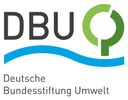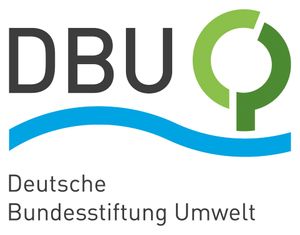
“For the Shipping Industry, This Is a Gyro Gearloose Moment” - German Environmental Award for Energy and CO2 Reduction
5.9.2022 09:50:27 CEST | Deutsche Bundesstiftung Umwelt (DBU) | Press release
Interplay Between Cutting-Edge Research and Entrepreneurial Courage
DBU Secretary General Alexander Bonde says that it is extremely important to “bring the shipping industry in line with climate requirements”. After all, international shipping accounts for almost three percent of global greenhouse gas (GHG) emissions. This is more than 1.1 billion tons of CO2 equivalent. In comparison, according to the Federal Environmental Agency, Germany’s annual GHG emissions are 762 million tons. Bonde: “For the shipping industry, the BMD is a Gyro Gearloose moment.” The collaboration between the two engineers is a great example of how fruitful cooperation between cutting-edge research and entrepreneurial courage can be for product innovation. “And their invention, the Becker Mewis Duct, is truly a win-win. It will save fuel, and thus energy, for the shipping industry. Above all, however, it is good for the environment, as it reduces the pollution of greenhouse gases.” In fact, it is calculated that the BMD has saved around twelve million tons of CO2 since 2008—corresponding to approximately the annual CO2 emissions of Tanzania or Hamburg. Bonde explains: “The key factors here are the increase in efficiency brought about by the Becker Mewis Duct and the positive impact on the environment. These will both persist—even if the shipping industry eventually moves to other, more environmentally friendly, fuels in place of heavy oil.”
Professional Experience, Inventions and Numerous Patents
The collaboration between Mewis (79) and Lehmann (58) dates back to 2001. Mewis had already made a name for himself as an innovator in shipbuilding, while Lehmann was the new head of the medium-sized maritime company Becker Marine Systems based in Hamburg, of which he is still a managing director today. Mewis, who was born in Wittenberg, once home to Martin Luther, in 1943, first worked at the Potsdam shipbuilding research institute after studying shipbuilding, before moving to the Hamburg shipbuilding research institute in 1996, a few years after reunification. After retirement, Mewis continued to work from Dresden as a consultant for shipowners, shipyards and shipbuilding suppliers, and has almost a dozen patents in his name. Lehmann is a proud Hamburger and also has numerous patents. In addition to his main job, he is a shareholder in start-ups working in electric and hydrogen mobility. He is also involved in several organizations, including as Vice-Chairman of Sea Europe, the shipyards’ and maritime equipment association of Europe.
Emergence of a Dazzling Idea
While Mewis and Lehmann initially focused on enhancing rudders for very large container ships, they began working more intensively on other areas from 2007 on. It all came down to the question of how the efficiency of large, slow, “full-form” ships could be increased—from tankers to bulkers, in other words bulk carriers for ore, grain, and other materials. Container ships were subsequently also added. Mewis: “All the technical tricks had actually already been invented.” At some point, however, he came up with a dazzling idea—to combine different, already existing, components. The Becker Mewis Duct was thus born—a hydrodynamic energy-saving duct positioned in front of the propeller, or an “energy-saving device”, as it is referred to in technical speak. Weighing up to 60 tons, and with a diameter of up to seven meters, it is produced in two halves that are welded together on the ship. Lehmann believed strongly in this invention, pressed ahead with it with great passion, convinced doubters, and overcame the necessary red tape. This is how he explains the BMD in layman’s terms: “A ship is like a shoe box being pushed through the water. At the front, there’s a wave, and at the back, the water doesn’t know where to go.” Mewis set his sights on this “wake field”. Lehmann: “It’s like cutting a yogurt pot crosswise and positioning it behind the box as a funnel—and in front of the propeller. This bundles the water together.”
Increased Environmental Protection Through Technological Advancements
As a technical refinement, asymmetrical flow-guiding parts, known as fins, were integrated into this front duct. In short: the working principle for the Becker Mewis Duct. Lehmann: “The result is a negatively generated swirl in the opposite direction to the propeller rotation.” This is the prerequisite for the Becker Mewis Duct to ensure more effective ship propulsion, to reduce the consumption of heavy fuel oil by up to ten percent, and thus to protect the environment from greenhouse gases. A positive side effect: quieter ships and thus less noise pollution for marine life such as whales. The Becker Mewis Duct has so far been installed in 1,400 vessels worldwide, with 300 more soon to follow. The two award winners regard the German Environmental Award as a “great honor”. Lehmann also hopes that politicians will put “zero emissions in the shipping industry at the top of the agenda”.
Contacts
Klaus Jongebloed
- Pressesprecher -
Kerstin Heemann
Lea Kessens
0541|9633-521
0171|3812888
presse@dbu.de
www.dbu.de
About Deutsche Bundesstiftung Umwelt (DBU)
 Deutsche Bundesstiftung Umwelt (DBU)
Deutsche Bundesstiftung Umwelt (DBU)Subscribe to releases from Deutsche Bundesstiftung Umwelt (DBU)
Subscribe to all the latest releases from Deutsche Bundesstiftung Umwelt (DBU) by registering your e-mail address below. You can unsubscribe at any time.
Latest releases from Deutsche Bundesstiftung Umwelt (DBU)
“The award recipients give us hope”11.10.2021 09:30:27 CEST | Press release
Ecologist and peatland researcher receive German Environmental Prize
Steinmeier: Let us change course for climate protection and biodiversity11.10.2021 09:27:28 CEST | Press release
Federal President presents German Environmental Prize
German President symbolically presents German Environmental Award via video message /“Taking the climate crisis seriously despite the COVID-19 pandemic ”26.10.2020 09:11:10 CET | Pressemeddelelse
German President symbolically presents German Environmental Award via video message
"Bold decisions today will trigger positive interactions for tomorrow"28.10.2019 09:07:36 CET | Pressemeddelelse
Federal President presents DBU's German Environmental Award today - Kögel-Knabner and Schneider honoured
DBU honours innovators in the field of environmental protection who offer solutions for the future28.10.2019 09:04:57 CET | Press release
The German Environmental Prize was awarded to soil researcher Prof. Dr. Ingrid Kögel-Knabner and entrepreneur Reinhard Schneider